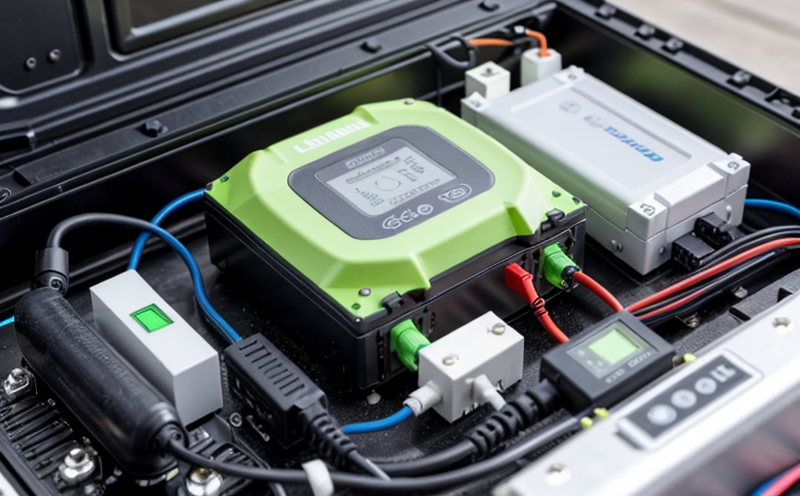UL 1973 Lithium-Ion Battery Testing for Stationary Energy Storage Systems
The UL 1973 standard is specifically designed to address the safety concerns associated with lithium-ion batteries used in stationary energy storage systems. This stringent testing ensures that these batteries meet rigorous performance, durability, and safety requirements before they are deployed in critical infrastructure applications such as grid storage, renewable energy integration, and uninterruptible power supply (UPS) systems.
The UL 1973 standard is a harmonized approach based on global standards like IEC 62619. It covers the testing of lithium-ion batteries for use in stationary applications where safety is paramount due to potential high energy density, fire hazards, and other risks associated with battery failures.
The scope of UL 1973 testing encompasses a wide range of critical tests aimed at ensuring that batteries are safe under various operational conditions. These include thermal abuse tests such as overcharging, short circuiting, and forced discharge, as well as mechanical stress tests like vibration, drop tests, and internal short-circuiting.
For quality managers and compliance officers, UL 1973 testing is essential to ensure that the batteries meet all regulatory requirements. R&D engineers can use this service to validate new designs and materials, while procurement teams benefit from knowing which suppliers are meeting these stringent standards.
The testing process involves complex laboratory equipment capable of simulating real-world conditions and stresses that may be encountered during battery operation. This includes specialized chambers for temperature cycling, calorimeters for heat measurement, and high-precision electrical testers to monitor battery performance under various loads.
One of the key aspects of UL 1973 testing is the focus on ensuring that batteries can withstand extreme conditions without compromising safety or functionality. The tests are designed to push batteries to their limits to identify potential weaknesses early in the development process, allowing manufacturers to address these issues before product release.
The results of UL 1973 testing provide critical data for quality assurance and reliability. This information is invaluable for stakeholders who need to demonstrate compliance with safety standards, ensuring that their products are reliable and safe for long-term use.
Why Choose This Test
- Ensures compliance with UL 1973 standards, meeting international regulatory requirements.
- Promotes product safety by identifying potential hazards early in the development process.
- Provides detailed reports that can be used for quality assurance and reliability.
- Supports market entry into high-regulation regions where stringent safety measures are enforced.
The UL 1973 testing is crucial for manufacturers looking to ensure their batteries meet the highest safety standards. By choosing this test, companies can avoid costly recalls and legal issues associated with non-compliance. Additionally, compliance with these rigorous standards enhances market reputation and opens doors to new partnerships and opportunities.
Quality and Reliability Assurance
- Thorough evaluation of battery performance under various conditions using advanced laboratory equipment.
- Identification and mitigation of potential safety hazards through comprehensive testing protocols.
- Detailed reporting that provides insights into the battery's durability, reliability, and compliance with UL 1973 standards.
The UL 1973 Lithium-Ion Battery Testing service is designed to provide manufacturers with a robust framework for ensuring quality and reliability. By subjecting batteries to a range of stress tests, we help identify any weaknesses or potential issues that could impact performance in real-world applications. This ensures that the batteries meet not only current standards but are also prepared for future regulatory changes.
Environmental and Sustainability Contributions
The UL 1973 Lithium-Ion Battery Testing service plays a crucial role in supporting environmental sustainability by ensuring that batteries used in stationary energy storage systems are safe, reliable, and durable. By reducing the risk of accidents and failures, this testing helps minimize waste and the need for frequent replacements, thereby extending the lifecycle of these batteries.
Moreover, adherence to UL 1973 standards promotes sustainable practices by encouraging manufacturers to innovate with safer materials and designs that enhance both performance and safety. This not only benefits end-users but also contributes to a more sustainable energy ecosystem.





